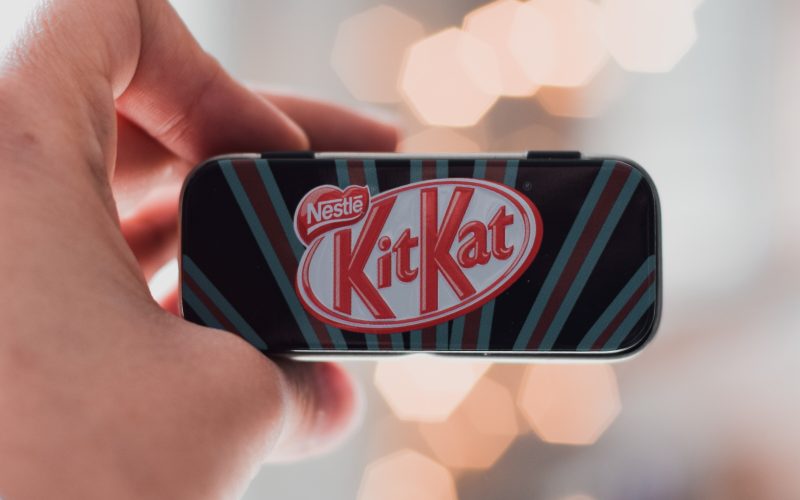Introduction
Nestlé, one of the world’s largest food and beverage companies, has recently made a shocking revelation that may leave you rethinking your grocery list. According to their own internal documents, the majority of Nestlé’s products are unhealthy. That’s right – the very foods and drinks we consume on a daily basis may be doing us more harm than good. As consumers, it is crucial to understand the effects of these products on our health and hold Nestlé accountable for their actions. Join us as we delve into this eye-opening topic and explore what can be done about it.
Nestlé’s unhealthy food and drinks
Nestlé, one of the largest food and beverage companies in the world, has recently made a shocking revelation that the majority of its products are unhealthy. This includes popular brands such as KitKat, Nescafé, and Maggi noodles.
One major issue with Nestlé’s products is their high sugar content. Many of their drinks and snacks contain excessive amounts of added sugars which have been linked to various health problems including obesity, diabetes, and heart disease.
In addition to sugar, Nestlé’s products also often contain high levels of salt and saturated fats. These ingredients can increase the risk of developing hypertension or other chronic diseases.
Furthermore, Nestlé has been criticized for marketing unhealthy foods to children through colorful packaging and cartoon characters on their labels. This has led to concerns about childhood obesity rates increasing as a result.
Despite these concerns being raised by health experts over many years now, Nestlé has only just disclosed this information publicly. The company must take responsibility for its role in contributing to poor public health outcomes around the globe.
The effects of Nestlé’s products on consumers
Consumers of Nestlé’s products are exposed to a wide range of negative effects on their health. One of the most significant impacts is weight gain and obesity. Many Nestlé products are high in sugar, fat, and calories which contribute to poor nutrition and unhealthy eating habits.
Consuming too much sugar can lead to diabetes, heart disease, high blood pressure, and other chronic illnesses. Additionally, many Nestlé products contain artificial flavors and preservatives that have been linked to cancer.
Apart from physical health issues, consuming unhealthy food also takes a toll on mental wellbeing. A diet rich in processed foods has been associated with depression and anxiety disorders.
Furthermore, Nestle’s marketing strategies targeting young children with sugary cereals or chocolates can establish harmful dietary patterns early on in life leading to serious medical conditions at an early age.
It is essential for consumers to be aware of the potential risks associated with consuming unhealthy food regularly. While we cannot blame all these problems solely on Nestlé as it is ultimately up to individuals what they eat but by providing better options for customers who appreciate healthy choices rather than just profit-based decisions should be considered by companies such as Nestle.
Nestlé’s responsibility
Nestlé is one of the largest and most influential food companies in the world. With such a massive global reach, it has a huge responsibility to ensure that its products are healthy, safe and sustainable for both consumers and the environment.
Unfortunately, Nestlé’s recent revelation about the majority of its food and drinks being unhealthy raises serious questions about their level of corporate responsibility. By continuing to produce products that are high in sugar, salt and saturated fat, they are contributing to the growing epidemic of obesity, diabetes and other health problems.
Moreover, Nestlé must take accountability for the impact that their production methods have on our planet. From deforestation to water depletion to plastic waste pollution – these issues cannot be ignored any longer.
As an industry leader with immense resources at their disposal, Nestlé should be taking proactive steps towards positive change. This includes investing in research and development for healthier product options or exploring more sustainable packaging solutions.
Ultimately, as consumers become increasingly aware of what goes into their food choices, it is crucial for companies like Nestlé to prioritize transparency regarding ingredients and production processes alike. Only then can we trust them with our health – as well as that of our planet’s future generations.
What can be done about Nestlé’s products?
As consumers, we have the power to demand change from Nestlé. One way to do this is by carefully reading food labels and making informed choices about what products we purchase. By choosing healthier alternatives and avoiding Nestlé’s unhealthy options, we can send a message that we value our health above convenience.
We can also voice our concerns directly to Nestlé through social media or email campaigns. The company has already made some changes in response to consumer pressure, such as reducing sugar in their breakfast cereals and removing artificial colors and flavors from their chocolate bars.
Another option is to support government regulations on food labeling and advertising. This would require companies like Nestle to be transparent about the ingredients in their products and limit false or misleading claims about their nutritional value.
Educating ourselves and others about nutrition can help us make more informed decisions when it comes to purchasing food products. By spreading awareness of the dangers of consuming unhealthy foods regularly, we may influence others around us who are still unaware of these issues.
While there is no one solution for fixing Nestlé’s unhealthy product line, collective action from consumers, advocacy groups, governments and other stakeholders can encourage positive change towards healthier eating habits for everyone.
Conclusion
Nestlé’s shocking revelation that the majority of its food and drinks are unhealthy is a wake-up call for both the company and consumers. It highlights the need for more transparency in labeling and advertising, as well as stricter regulations on what can be considered “healthy” food.
Consumers have the power to demand better from companies like Nestlé by choosing healthier options and supporting brands that prioritize health over profits. At the same time, Nestlé must take responsibility for its role in promoting unhealthy products and make a genuine effort to improve the nutritional value of its offerings.
Ultimately, it’s up to all of us – individuals, companies, governments – to work together towards creating a healthier future. By raising awareness about these issues and taking action where we can, we can help ensure that everyone has access to nutritious food choices that support their wellbeing.












